From Beaumont to the Barangay: Fr. Neil Arce’s Journey to a New Kind of Hermitage
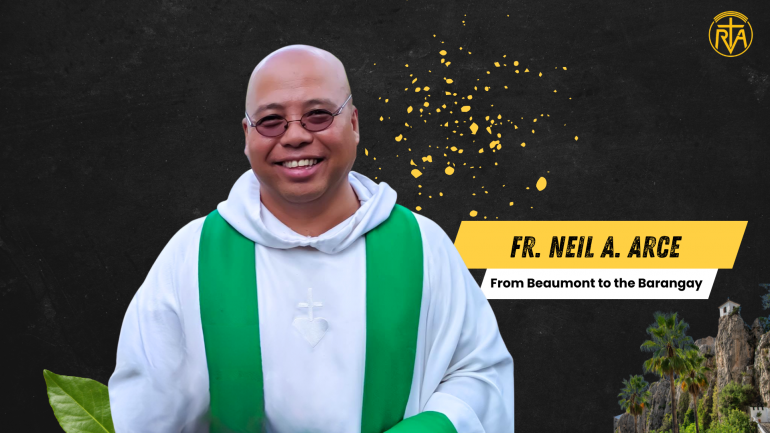
When Fr. Neil Arce left his parish in Texas, USA, for the mountains in the Archdiocese of Capiz, he traded financial stability for what he calls “quality of life.” In the United States, he had friends, comfort, and familiarity. Back in his homeland, he faced silence, and one night, an overwhelming loneliness so heavy he could barely breathe.
“I felt I was dying,” he recalls. “But it was also the moment I knew I had found the God I was searching for.”
That moment marked a turning point in a long spiritual journey that began decades earlier in the seminary. As a young student in Capiz, Arce was drawn to silence and solitude without knowing where they would lead. Later, with the Franciscans, his love for quiet deepened. A book he found in the library, Cry the Gospel with Your Life, introduced him to the life of Saint Charles de Foucauld, a hermit who lived among the poor in the Sahara. “His life intrigued me,” he says. “I kept wondering, can this be lived in modern times?”
It took years of discernment and obedience to find out. After his formation in the Philippines, Arce joined the Diocese of Beaumont, Texas, where he served Hispanic immigrants in small parishes. He later earned a doctorate in ministry, writing on personal stories as a pastoral vehicle to promote the spirituality of encounter in a racially divided parish.
“Racism was still strong in the deep South,” he says. “It used to be directed at Black Americans. Now it was toward immigrants, especially the undocumented.” His ministry among migrants awakened in him a desire to live closer to the marginalized, what he calls “the peripheries where God became incarnate.”
In 2012, Arce wrote to his bishop, Curtis Guillory, asking permission to live as a hermit. “I wrote that I had met God incarnate in the peripheries,” he recalls, “and if I am to follow Him, I must follow Him in Nazareth.” The bishop refused at first, asking him to stay in the diocese, where bilingual priests were much needed. Arce obeyed. “Obedience,” he says, “is the weapon against self-deception.”
Three years later, permission finally came. Arce returned to the Philippines, living alone in a mountain hermitage. What began as a solitary experiment gradually grew into a community. “Many young Filipinos wanted to join me,” he says. “I never planned to start one.”
With the blessing of then-Bishop Jose Advincula, now Cardinal of Manila, he founded The Beloved Disciples of Jesus, a small contemplative community inspired by the hidden life of Christ in Nazareth. Their rule is simple: a life of prayer, work, and silence among the poor.
In Filipino culture, the word ermitanyo still evokes images of wild-haired mystics living in caves, detached from society. Fr. Arce smiles at that notion. “Even Anthony of the Desert came out to preach,” he says. “Hermits are very people-oriented. We live in solitude not to escape but to deepen our presence.”
The brothers’ daily rhythm begins at 2:45 a.m. with silent meditation before the Blessed Sacrament, followed by communal prayers and Mass. Each lives in a separate hut equipped for prayer and simple living. They work with their hands to support themselves, raising chickens, planting vegetables, and selling ice candy or rosaries in the market.
“In our constitution, we are not allowed to have benefactors or beg,” he says. “Like Jesus of Nazareth, we belong to the working class.”
For Arce, solitude is not passive withdrawal. It is “active solitude,” a wellspring of compassion and moral clarity. “My God is a God of solitude and silence,” he says. “But it’s a silence that moves you to act.”
He believes modern hermits cannot stay blind to the world’s pain. From the desert fathers to modern figures like Thomas Merton and Charles de Foucauld, hermits have long spoken out against injustice. His own mentor, Fr. Francis Kelly Nemeck of Texas, protested against fracking, a destructive mining practice. “A Christian hermit must say something about what is unjust,” Arce says. “Solitude helps us see reality with mercy and courage.”
In this sense, today’s hermits, though distant from the world’s noise, are deeply engaged with its wounds. Their quiet lives challenge the culture of consumption and distraction by witnessing to another way of being: grounded, prayerful, and simple.
“We’re not running away from people,” he explains. “Our solitude completes the beauty of the world and humanity. It helps us remind others how beautiful people are.”
Each brother undergoes monthly psychological and spiritual direction to monitor their disposition in solitude. “Silence can heal,” Arce says, “but it can also expose wounds. We need guidance.”
Despite the hardships, he calls his hermit life “a grace.” He travels to the U.S. once a year to give retreats and talks, using stipends to sustain the community. Yet he always returns to the mountains, where the rhythm of prayer and labor continues, a hidden echo of Nazareth.
“The United States was my heartland,” he says. “The Philippines is my homeland. And between the two, I found my hermitage, not a place of escape, but a place of encounter.”
For Fr. Neil Arce, solitude and silence are not absence but presence, the language of a God who still speaks in whispers amid the noise of the world.





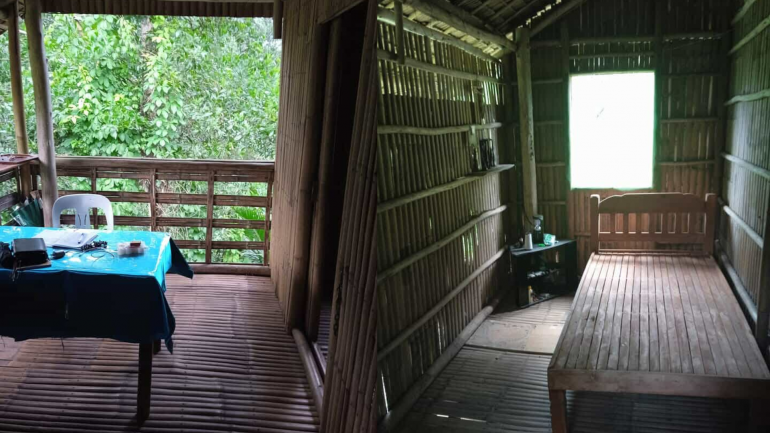
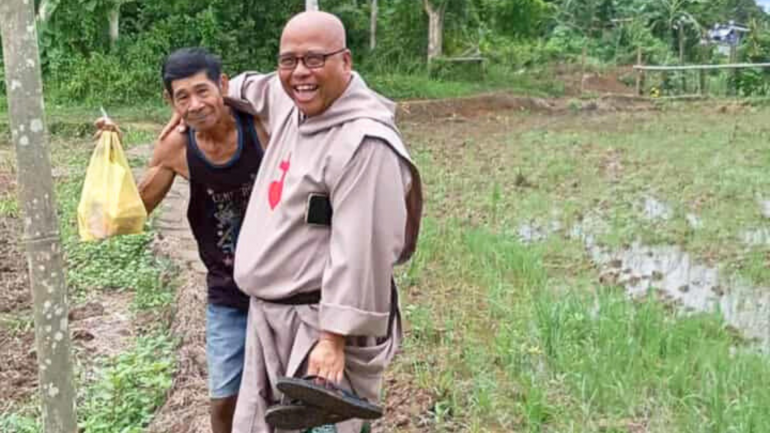
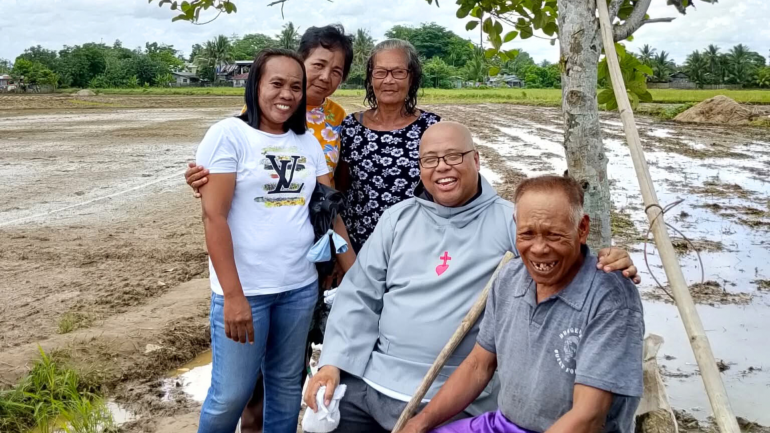
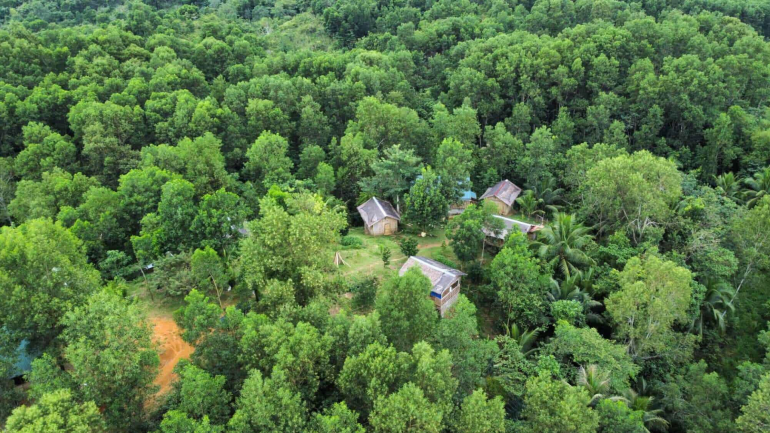
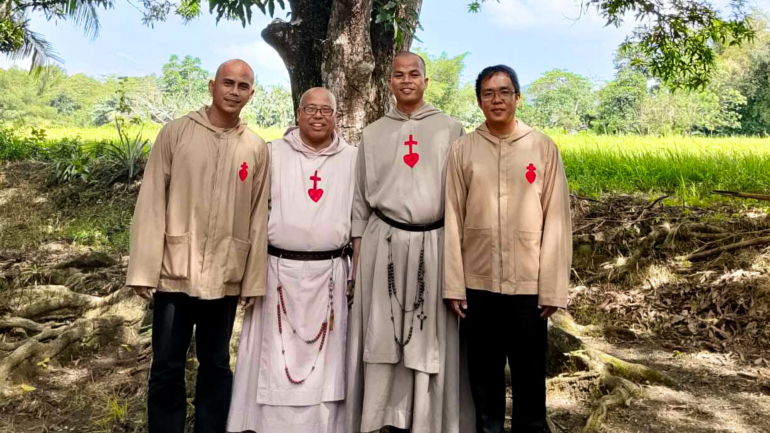





- Reply
Permalink